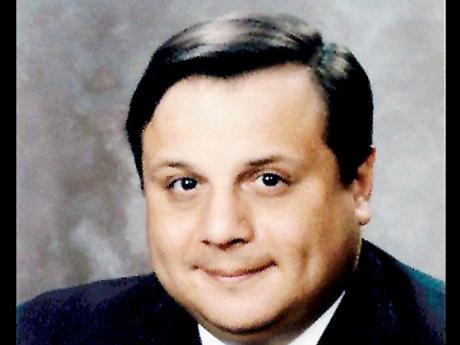Venezuela is a mess, but not totally
Dr Walter Molano, GUEST COLUMNIST
Venezuelan President Nicolas Maduro is weak and he finds himself in a pair of shoes that are too big to fill.
His popularity has been slipping, with a drop of 10 points over the last few months to a level of 41 per cent. Municipal elections are a week away. A slate of 340 mayors and 2,400 councillors will be elected on December 8, 2013.
The polls show that Maduro's party will win a majority of the electoral positions, but most of the victories will be in small towns. He is expected to be defeated across the major municipalities and cities, such as those that comprise Caracas.
To make matters worse, inflation is surging, with the CPI cresting more than 54 per cent y/y.
The high inflation rate, coupled with capital controls, made the bolivar grossly overvalued.
Anxious to get dollars, Venezuelans are pushing the parallel exchange rate into the stratosphere. At the time of this writing, the parallel exchange rate was 80 bolivars, but it is rising at an exponential pace. This is in comparison with the official rate of 6.3 bolivars, which represents a devaluation of 92 per cent.
Not surprisingly, shortages and distortions abound. Flights in and out of the country are jammed, given that Venezuelans who travel abroad can get access to dollars at the official rate. In an effort to curtail black market operations, the government is introducing a parallel exchange rate for foreigners visiting Venezuela.
This is just one of the many parallel rates that are under consideration.
President Maduro is also stepping up the rhetoric and aggression against the market. Two weeks ago, government officials arrested five managers from the Daka, JVG and Krash retailing chains. They were charged with buying white goods and electronics with funds that were obtained at the official rate and retailing them at prices that reflected the parallel rate.
If true, the government would have a valid case for its actions. However, officials were more interested in sending a political message to the public. This induced many international investors to dump their positions and head for the door. In the aftermath of the incident, Venezuelan and PDVSA bonds sank 8-10 points, pushing them to the lowest level in almost two years.
NO IMMINENT DEFAULT
Yet, was the sell-off justified? Venezuela's economic and political situation is not idyllic. It must be a tough place to live, but the country is in no threat of imminent default.
On the contrary, Venezuela's credit situation is comfortable and improving. The new PDVSA 2026 issue is being used to offset the amortisation of the PDVSA 2013s, plus generating additional funds for the central bank to use in its SICAD programme.
Given that much of the new issue went into government agencies that were already holding the PDVSA 2013s, it was a virtual rolling over of the debt. Many analysts and investors were concerned by the large decline in international reserves. The reserves fell by a third this year, and more than two-thirds are in gold bullion.
Ever since the repatriation of the gold, many people have had doubts about its whereabouts. Yet, with a current account surplus of US$3.2 billion during the first half of the year and a forecasted surplus of 3.5 per cent of GDP for the entire year, it does not look like the country will face any major shortfall.
The Venezuelan government and PDVSA have a combined maturity bill of US$4.5 billion next year, and a total debt service of more than US$20 billion. Yet, US$16 billion of the obligations is for debts owed to service providers.
The total stock of sovereign and PDVSA foreign obligations is US$80 billion, with roughly US$40 billion each - which pales in comparison to the country's US$382 billion in national output.
Moreover, the government has ample non-reserve assets, such as PetroCaribe, FONDEN and several other government funds that can be used to service external obligations.
It is pretty clear that the government does not want to do anything to jeopardise the foreign direct investment that is flowing into the Orinoco Belt. The government hopes that new project will increase daily production to four million barrels per day. Production in 2014 is slated for 3.1 mbpd, up from 2.7 mbpd last year.
This is Maduro's only hope of retaining power. If he is able to generate enough resources to keep his populist policies alive, he can cling on for a long time. Therefore, Venezuela is compensating investors for the risk they are taking. It is also demonstrating that it has the capability and willingness to service its debt.
The place may be a mess, but the rewards are interesting as well.
Dr Walter T. Molano is a managing partner and the head of research at BCP Securities LLC.wmolano@bcpsecurities.com


